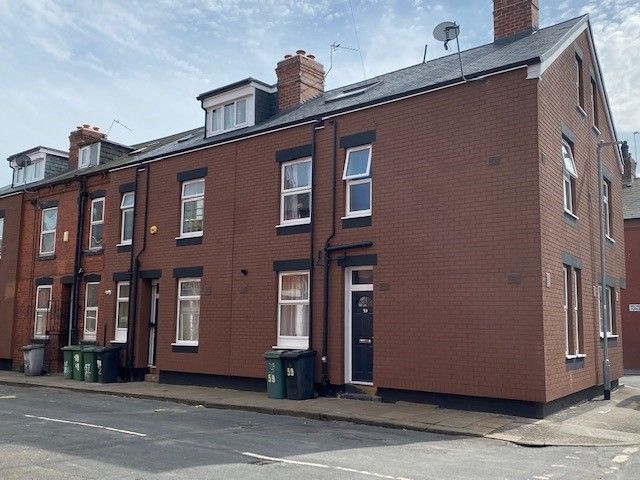Leeds City Council has launched a £4.4 million energy efficiency scheme aimed at upgrading 100 back-to-back terraced homes in the Cedars area of Armley, with plans for completion by the end of 2025. This initiative will enhance living conditions through better insulation, new windows and doors, and the exploration of ground source heat pumps, all while addressing fuel poverty and promoting environmental sustainability.
What is the energy efficiency scheme for back-to-back homes in Leeds about?
The energy efficiency scheme in Leeds targets the upgrade of 100 back-to-back terraced homes in the Cedars area to enhance living conditions and environmental sustainability. This £4.4 million initiative includes improved insulation, new doors and windows, and explores the use of ground source heat pumps, aiming for completion by the end of 2025.
Housing Standards and Community Well-being
Leeds City Council has announced a significant investment into the energy efficiency of homes within the local community. This initiative aims not only to enhance living conditions but also to promote environmental sustainability. The focus of the effort lies in the Cedars area of Armley, where back-to-back terraced homes—structures synonymous with the historical identity of the region—are set to undergo comprehensive upgrades.
The upcoming scheme, valued at approximately £4.4 million, is expected to commence in January. It targets around 100 houses, ripe for improvements such as upgraded insulation for external walls and attic spaces. The plan also extends to the installation of new doors and windows, which is essential for reducing heat loss. This project stands as a testament to the council’s dedication to mitigating the pressing issues of fuel poverty and related health concerns, which are particularly acute during the colder months.
One of the strategic aspects of the scheme is a technical study poised to explore the feasibility of leveraging ground source heat pumps. These pumps represent a cutting-edge technology that could significantly reduce the carbon footprint of these homes. The council, together with Equans as the delivery partner, is spearheading the project, backed by an amalgamation of funding from the West Yorkshire Combined Authority, central government, and energy suppliers.
A Collaborative Effort for an Inclusive Transformation
The Cedars was specifically selected for this energy efficiency initiative due to its notable levels of deprivation, with fuel poverty being a stark reality for many residents. The fact that many of the homes in question have stood for over a century underlines the urgency of modernization. The council’s strategy includes both its own housing stock and privately-owned properties, ensuring a broad and unified visual transformation that benefits entire streets.
The financing model reflects a commitment to inclusivity, with private homeowners and landlords shouldering up to 25 percent of the costs. This approach ensures that the benefits of the scheme are not scattered but instead create a ripple effect across the community. The project is in line with previous successful enhancement programs in Holbeck, Little London, and Seacroft, contributing to the larger vision of Leeds as a pioneering city in terms of energy efficiency and social equity.
Completing by the end of 2025, these upgrades are intrinsic to the council’s endeavours to address the nexus between social inequality, health outcomes, and environmental sustainability. As the city strives to become the UK’s first net zero city, projects like this are crucial milestones that reflect a strong partnership between the local government and regional authorities.
Statements from Local Leaders
Councillor Jess Lennox has articulated the council’s vision with clarity, emphasizing the mission to ensure that “everyone in Leeds has a home that gives them the right foundation for leading a happy and healthy life.” The upcoming initiative is not just about improving physical structures; it is about enhancing the quality of life for the inhabitants. By making homes “easier and cheaper to heat,” the council is addressing the immediate challenge of fuel poverty while also contributing to global efforts to curb climate change.
Tracy Brabin, the Mayor of West Yorkshire, echoes this sentiment by highlighting the poignant relevance of the project amidst the current cost of living crisis. She points out the long-term financial relief that energy-efficient homes can bring to families, thereby weaving a narrative of economic sensibility into the broader tapestry of environmental sustainability. The Mayor’s support illustrates the synergy between the council’s objectives and the regional strategy for a greener, more secure West Yorkshire.
The scheme dovetails with the larger Marmot programme, a council-led initiative in partnership with University College London’s Institute of Health Equity, to address health disparities across the city. Named after Professor Sir Michael Marmot, a luminary in public health, the programme is a comprehensive approach to creating a healthier, more equitable Leeds. The council’s commitment to retrofitting homes is a practical manifestation of the Marmot principles, promising a future where every resident enjoys the benefits of a warm and sustainable home.
For more information about the energy efficiency scheme and guidance on how to participate, interested parties can visit Leeds City Council’s official website.
This update is brought to you in partnership with Leeds City Council and their dedicated efforts to improve housing conditions for the community while advancing towards an eco-friendly future.
- Leeds City Council has initiated a £4.4 million energy efficiency scheme aimed at upgrading 100 back-to-back terraced homes in Armley, targeting completion by the end of 2025.
- The scheme includes improvements such as better insulation, new windows and doors, and an exploration of ground source heat pumps to enhance living conditions and promote environmental sustainability.
- The Cedars area was chosen for the project due to high levels of deprivation and fuel poverty among residents, emphasizing the need for modernization of homes that have existed for over a century.
- The financing model encourages inclusivity by requiring private homeowners and landlords to contribute up to 25 percent of the costs, ensuring a community-wide benefit from the upgrades.
- Local leaders emphasize the importance of the initiative in addressing fuel poverty, enhancing quality of life, and contributing to Leeds’ goal of becoming the UK’s first net zero city.
